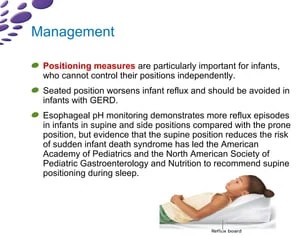A nurse is providing teaching to the parents of a toddler about nutritional needs and habits. Which of the following instructions should the nurse include in the teaching?
"Set meal times immediately after physical activity."
"Avoid snacks between meals."
"Allow the toddler to feed himself."
"Provide different food for the toddler than the parents."
The Correct Answer is C
The nurse should include the instruction to "allow the toddler to feed himself" in the teaching. Allowing toddlers to self-feed promotes independence and helps develop their fine motor skills.
It also allows them to explore different textures and tastes of food, which can contribute to their overall development and acceptance of a variety of foods.
"Set meal times immediately after physical activity": It is not necessary to schedule meals immediately after physical activity. It is more important to focus on regular meal and snack times throughout the day to ensure the toddler's nutritional needs are met.
"Avoid snacks between meals": Snacks are an important part of a toddler's diet as they have small stomachs and may not be able to consume enough food during regular meal times.
Nutritious snacks can provide additional energy and nutrients to support their growth and development. However, it is important to choose healthy snacks and avoid excessive consumption of sugary or high-calorie snacks.
"Provide different food for the toddler than the parents": It is generally recommended to offer the same types of healthy foods to both the toddler and the rest of the family. This helps promote family meals and exposes the child to a variety of flavors and textures. However, the food may need to be prepared or served in a way that is suitable for the toddler's age and developmental stage (e.g., cut into small pieces or mashed).
Nursing Test Bank
Naxlex Comprehensive Predictor Exams
Related Questions
Correct Answer is A
Explanation
In type 1 diabetes mellitus, when blood glucose levels are consistently high, the body may start breaking down fat for energy, leading to the production of ketones. Ketones can be detected in urine as a result. A blood glucose level of 190 milligrams per deciliter is elevated and can potentially trigger the production of ketones. Monitoring urine for ketones can be an important indicator of diabetes management and helps identify potential complications.
The other statements by the client indicate a lack of understanding or potential misconceptions:
● "I will keep my blood glucose levels between 200 and 212 milligrams per deciliter": This statement suggests a target range that is higher than the recommended target blood glucose levels for individuals with diabetes. Generally, the target range for blood glucose levels in individuals with diabetes is lower, typically between 80-130 mg/dL before meals and below 180 mg/dL after meals.
● "Albumin in my urine is an indication of normal kidney function": This statement is incorrect. The presence of albumin in the urine, called albuminuria, is an indication of kidney damage or dysfunction. It is a common sign of kidney disease, including diabetic nephropathy, which is a complication of diabetes affecting the kidneys.
● "I will keep my HbA1c at five percent": While maintaining a lower HbA1c level is generally desirable for individuals with diabetes, a target of five percent is too low. HbA1c is a measure of average blood glucose levels over the past two to three months. The American Diabetes Association (ADA) recommends an HbA1c target of less than 7 percent for most adults with diabetes, although individualized targets may vary based on factors such as age and other health conditions.
Correct Answer is C
Explanation
"Position the newborn at a 20-degree angle after feeding": This is the correct instruction. After feeding, it is beneficial to position the newborn at a slight angle, usually around 20 degrees, to help reduce gastroesophageal reflux. This position helps gravity keep the stomach contents down and prevents them from regurgitating back into the esophagus.
"Provide a small feeding just before bedtime": This instruction is not recommended for a newborn with gastroesophageal reflux. It is advisable to avoid feeding the baby just before bedtime as lying down can worsen the reflux symptoms. Instead, it is generally recommended to keep the baby upright for some time after feeding to allow for proper digestion and minimize reflux.
"Place the newborn in a side-lying position if vomiting": Placing the newborn in a side-lying position after vomiting is not recommended. This position does not provide adequate support to prevent choking or aspiration in case of vomiting. Instead, it is recommended to keep the newborn in an upright or slightly elevated position after feeding to minimize reflux.
"Dilute formula with 1 tablespoon of water": Diluting formula with water is not a recommended practice unless specifically advised by a healthcare provider. It is important to follow the instructions on the formula packaging or the healthcare provider's guidance regarding formula preparation to ensure appropriate nutrition and hydration for the newborn.

Whether you are a student looking to ace your exams or a practicing nurse seeking to enhance your expertise , our nursing education contents will empower you with the confidence and competence to make a difference in the lives of patients and become a respected leader in the healthcare field.
Visit Naxlex, invest in your future and unlock endless possibilities with our unparalleled nursing education contents today
Report Wrong Answer on the Current Question
Do you disagree with the answer? If yes, what is your expected answer? Explain.
Kindly be descriptive with the issue you are facing.
